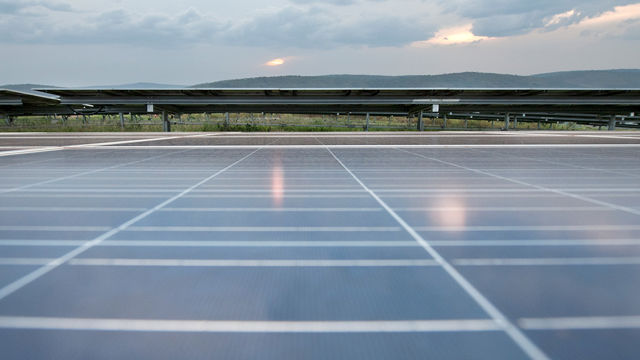Norad's enterprise development scheme for renewable energy

Norad's enterprise development scheme for renewable energy (EDRE) is a competition-based grant scheme. The call is open to applications from companies in all countries through the Grant portal, normally in December/January.
In order to secure a smooth process for applying businesses, the initial application is a concept note. Applicants advancing to the second round will be invited to send a complete application. The scheme is intended to stimulate economic development by contributing to increased energy access. The scheme is primarily aimed at developers, i.e. exporters and suppliers are not covered by this scheme. NGOs are also not eligible.
The enterprise development sets strict financing and expertise requirements to applicants, in order to increase the likelihood that granted support will result in investments. Norad also requires applicants to have policies in place in accordance with international best practice for environmental and social considerations, as well as ethical guidelines for their own operations.
Norad announces annual calls in support of i) project development, ii) training and iii) subsidies for guarantees and risk premiums. The announcements are normally made in December or January. In addition, Norad periodically opens ongoing calls on support of iv) public infrastructure to connect new energy production to the power grid. In 2023, NOK 69 million (MNOK) was paid out under this scheme.
Support for improved cooking solutions and smaller solar home systems is mainly supported through the Energy and Environment Partnership (EEP Africa), Global Energy Transformation Programm (Get.Pro) and Modern Cooking Facility for Africa (MCFA).
Norad may support up to 50% of the costs of project activities. The support is paid in arrears based on accrued, actual costs and after progress reporting has been submitted and approved. As a rule, all payments are based on audited project accounts.
This scheme covers all ODA countries. Geographical priority is given to Malawi, Mozambique, Nepal, Nigeria, Somalia and Tanzania and then other countries in sub-Saharan Africa (SSA).
These are some of the projects that have received support in recent years:
|
Beneficiary |
Year |
Measure/Geography |
Amount of support (MNOK) |
|
BURN Manufacturing CO. |
2023 |
Pre-study for electric cooking in Ghana |
5,00 |
|
Sowitec |
2023 |
Feasibility studies for wind power plants in Zambia and Zimbabwe |
8,5 |
|
South Africa Mainstream |
2023 |
Feasibility studies for solar and wind power plants in South Africa |
20,0 |
|
Tinfos AS |
2023 |
Feasibility studies and infrastructure support for hydropower plants in Indonesia |
22,5 |
|
KUBE Energy AS |
2022 |
Feasibility studies for the development of a decentralized solar power plant in Somalia (the plant has been put into operation) |
2,0 |
|
Engie Energy Access |
2022 |
Household solar systems for Malawi |
3,5 |
|
Westgass Hydrogen AS |
2022 |
Use of free hydropower capacity for the production of green hydrogen in Uganda |
1,81 |
|
Scatec ASA |
2021 |
Subsidy of risk premium for 150 MW Sukkur solar power plant in Pakistan (commissioned in 2024). |
40,00 |
|
SCATEC ASA / SN Power |
2017 |
Feasibility studies (multiple phases) of the Ruzizi 3 hydropower plant on the border between Burundi, Rwanda and the Democratic Republic of Congo. |
67 |